Latest News
18 January 2023
Nynke Dekker wins Physica Prize 2023
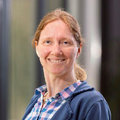
The Physica Prize 2023 has been awarded to Nynke Dekker, professor single molecule nanoscale biophysics at the Kavli Institute of Nanoscience at Delft Technical University. She has invented and developed innovative physical methods within molecular biology, which she applies to current and relevant issues in biology and medicine.
16 January 2023
Going abroad: two Delft researchers receive Rubicon grant
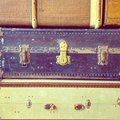
Two postdoctoral researchers from TU Delft have received a Rubicon grant from NWO, which enables them to gain research experience at a leading institute abroad for two years. The coveted grant was awarded to 15 researchers who recently received their PhDs in total.
16 January 2023
In search of the coveted safer, better, longer-lasting battery: BatteryNL kicks off
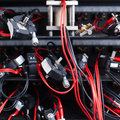
On the 12th of January a large number of parties involved in the development of batteries in the Netherlands – small companies, multinationals and knowledge institutes – attended the kick off of the BatteryNL consortium. Their goal is to develop the next generation of batteries within eight years based on a better understanding of material interfaces.
22 December 2022
When frustration leads to inspiration for Open Science

According to Adarsh Kalikadien, PhD candidate at the Faculty of Applied Sciences, open access publishing is not enough if you really want to perform open science, especially when you work with large data sets or self-designed software. "Freely accessible or not, a PDF full of messy data is useless to me as a fellow researcher. Publishing data and code openly is only of value if someone else can work with it."
14 December 2022
40 million euros for research on innovative technologies in nine new Perspectief programmes
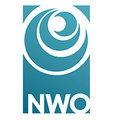
Nine consortia of researchers, companies, government bodies, and societal organisations have been awarded a total of almost 40 million euros to develop technological innovations targeting societal challenges. TU Delft is leader in three awarded consortia and participates in three other consortia, related to our societal themes Resilient Cities & Mobility, Health & Care and Climate & Energy.
06 December 2022
Medical experts and engineers speak each other’s language in Delft
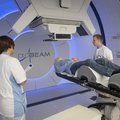
An outpatients’ centre for cancer patients is certainly not the first thing you would expect to encounter on TU Delft campus. ‘But the decision to choose Delft as the location for the Holland Proton Therapy Centre has actually proved to be a very smart move’, says Medical Director Prof. Marco van Vulpen. The location alongside the TU Delft Reactor Institute offers an excellent opportunity for clinicians and engineers to collaborate closely.
01 December 2022
3-in-1 microscope shows researchers the way to proteins
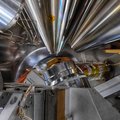
Physicists from TU Delft have developed a 3-in-1 microscope where a light beam, electron beam and ion beam work together to precisely cut out specific slices from biological samples. These slices are indispensable for biomolecular research into new generations of medicines. The invention was published in the journal eLife on 1 December.
30 November 2022
NWO Open Technology funding to produce a versatile acid sustainably

The NWO has awarded over 5.3 million euros to six projects through the Open Technology Programme, including the research of Ludovic Jourdin to make products from CO2 and renewable electricity, based on a versatile acid. Apart from the NWO funding, companies and other organisations involved invest 1.1 million euros into the projects.
29 November 2022
In search of the coveted safe, better, longer-lasting battery: BatteryNL
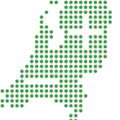
Everyone who works on the development of batteries in the Netherlands, small companies, multinationals and knowledge institutes, has joined together in the BatteryNL consortium to develop the next generation of batteries within eight years based on a better understanding of material interfaces. Prof. M. (Marnix) Wagemaker (TU Delft - Faculty of Applied Sciences) is the project leader of a €9.3 million project funded by NWO-ORC.
24 November 2022
Quantum sound connects future quantum devices
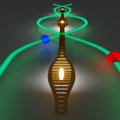
Physicists from the Gröblacher lab at TU Delft have built a device that can link different quantum devices and qubits to each other. This marks the first time that scientists are able to store as many qubits as they’d like within a very compact area on this type of chip.